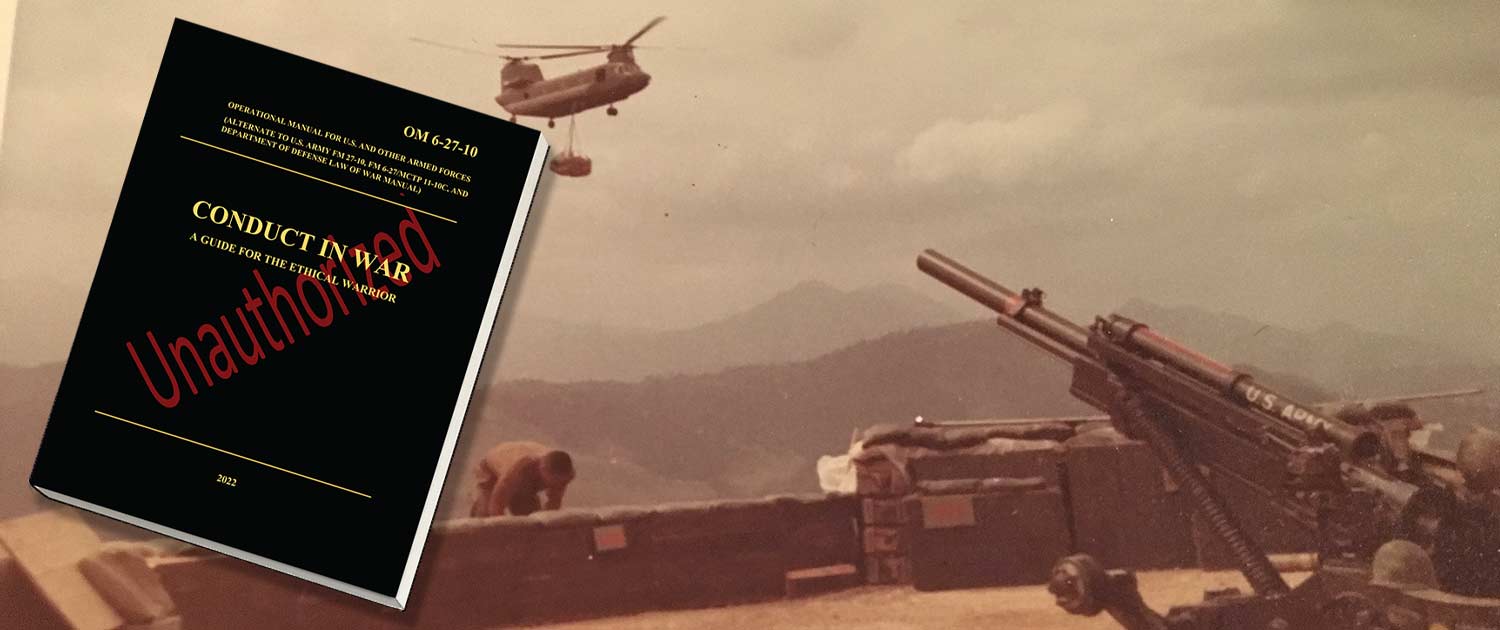WARNING
This Manual is unofficial, unauthorized, and not in full compliance with the international law of war; international human rights law; U.S. military manuals, handbooks, directives, and training materials; domestic law; and executive orders.
If, as a combatant, you follow this Manual, doing so may, in some situations, increase the likelihood you will be charged with violations of the law of war. If convicted, you may be fined, reduced in rank, less-than-honorably discharged, imprisoned, or executed. Charges could be brought by the United States, one of its allies, a neutral nation, international courts, or those with whom we are at war.
Nonetheless, if you as an ethical warrior are to do what is reasonable, responsible, and moral regardless of the law or official doctrine, you must at times be willing to expose yourself to extraordinary risks, not only on the battlefield but in a courtroom.
We should perhaps not so much complain that the law of war does not work well, as a marvel that it works at all.
Geoffrey Best
Humanity in War
Each man calls barbarism whatever is not his own practice.
Michel de Montaigne
French Renaissance Philosopher


